the treasure of our land
The olive tree is an ancient plant full of symbolic and cultural references, with its sculptural trunks and its indomitable foliage it has modeled the territory and the landscape of Abruzzo, just as with the oil that is obtained from its fruits it has given taste to the Italian cuisine culture.
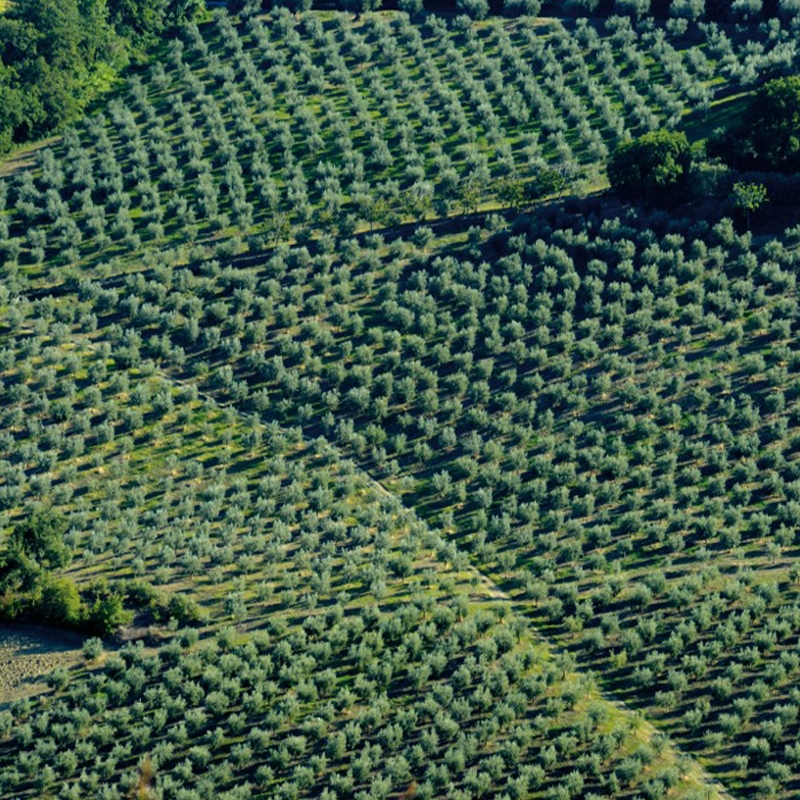
Our olive trees
the treasure of our land
In mythology, the olive tree was always a symbol of strength, peace and vitality and charity. In Egypt, in the rites of the Greeks, the Etruscans and also in the old Roman Empire and also in the liturgies we always find the olive tree.
The olive tree is an ancient plant full of symbolic and cultural references, with its sculptural trunks and its indomitable foliage it has modeled the territory and the landscape of Abruzzo, unique and magnificent in everything, as well as with the oil that is obtained from its fruit has given flavor to the Italian culinary culture.
Our olive groves are mainly characterized by two varieties of olives: La Leccino and La Gentile di Chieti.
The olives
A meticulous selection
THE OLIVE VARIETIES
The variety represents the enhancement element linked to the environmental aspect and to obtaining quantitatively and qualitatively valid productions. A large part of the regional olive production derives from only two varieties: the Leccino and the Gentile di Chieti, which are framed by numerous other varieties of lesser importance.
The Leccino
Variety introduced throughout the region and especially in recent plantings. Its diffusion prefers the hilly coastal area and the fertile and deep soils, showing problems of adaptability in the internal and cold areas of the region. Early and contemporary ripening period, average yield in oil.
The Gentile of Chieti
Typical variety of the province of Chieti, appreciated for its productivity and resistance to cold. Medium-late ripening period, graduated, with good yield in oil with excellent organoleptic characteristics, it is medium fruity.
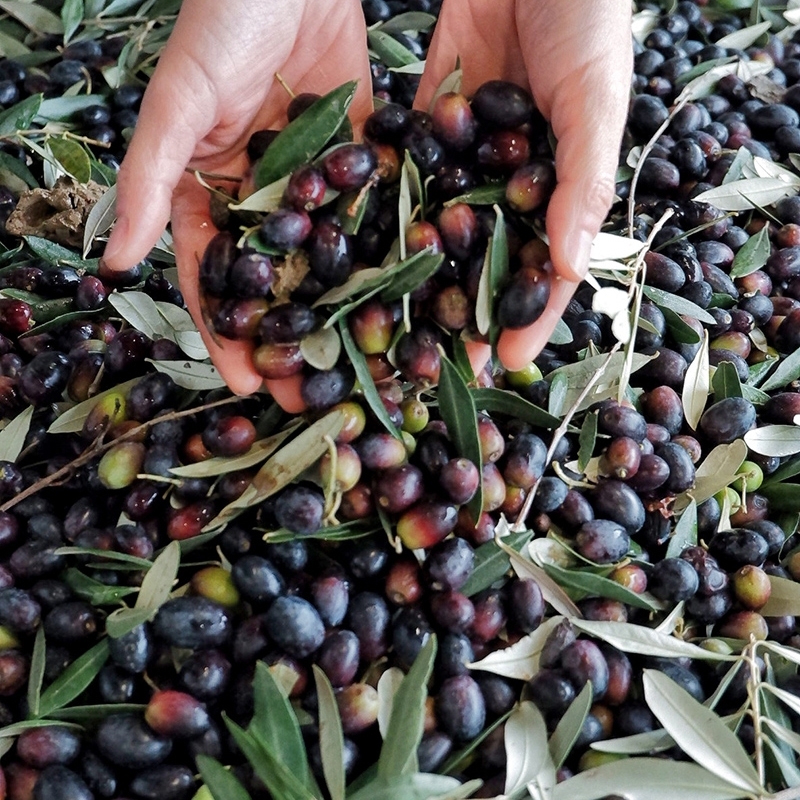
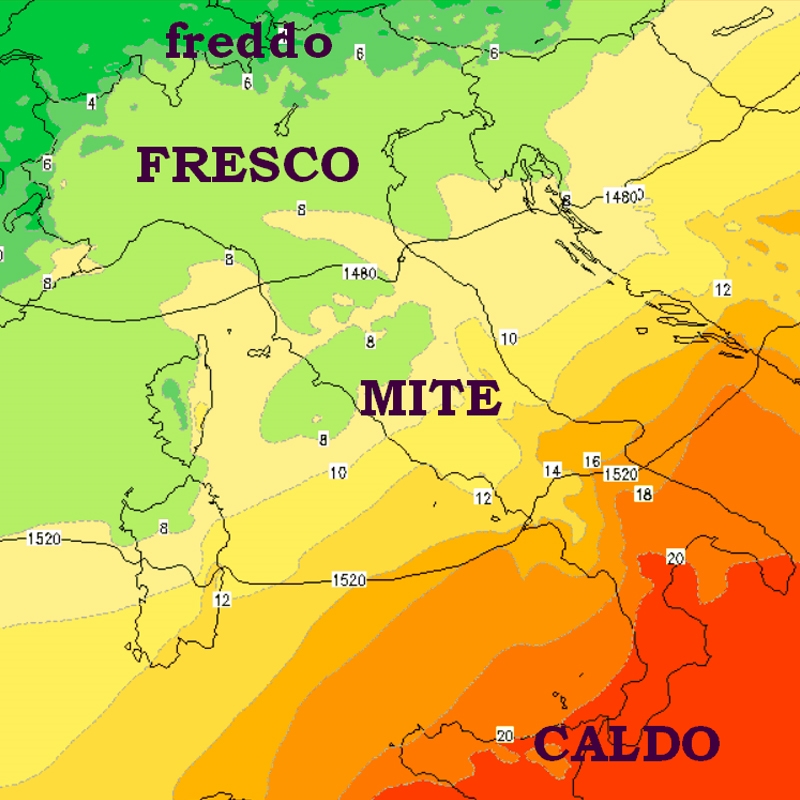
Climate
Mostly Mediterranean
The predominantly Mediterranean climate, characterized by low rainfall and mild seasonal temperature ranges, and the highly calcareous soil with good drainage capacity, make Abruzzo the perfect area for growing our olives.
The climate of Abruzzo is greatly conditioned by the Apennines, which in this region are made up of massive and imposing hills, just think of the Gran Sasso. The reliefs clearly separate the climate of the coastal strip and of the sub-Apennine hills from that of the higher inland mountain strips.
The coastal areas have a classic Mediterranean climate, with hot, dry summers and mild, rainy winters. Temperatures decrease progressively with altitude and rainfall increases with altitude.
Position
Geographic location
Abruzzo is an Italian region located east of Rome, between the Adriatic and the Apennines. The hinterland is mostly made up of national parks and nature reserves. The region also includes medieval and Renaissance villages perched on the hills. The regional capital, L'Aquila, is a walled city, damaged by the 2009 earthquake. The Costa dei Trabocchi, with sandy coves, takes its name from the traditional fishing piers.
Abruzzo is a region in central Italy. It borders to the north with the Marches, to the west with Lazio, to the south with Molise. To the east it overlooks the Adriatic Sea.
The Abruzzo territory is mountainous (65%) and hilly (35%). The coasts are washed by the Adriatic Sea to the east.
In Abruzzo there are the highest peaks of the Apennines (with the exception of Etna): the Gran Sasso d'Italia (2,912 m.) and La Maiella (2,795 m.). The main rivers descend towards the Adriatic and are the Aterno-Pescara and the Sangro, in addition to the Liri which flows into the Tyrrhenian Sea.
L'Aquila is the regional capital and is located at an altitude of 700 metres; the most populated city is instead Pescara, on the coast; Chieti and Teramo the other provinces, the total regional population is less than 1,300,000 inhabitants.
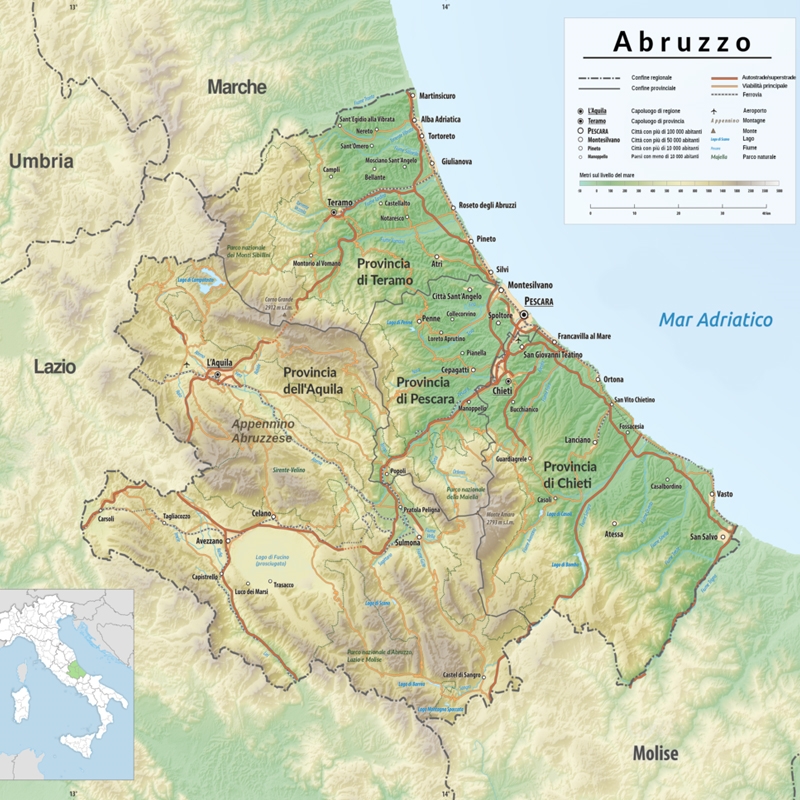
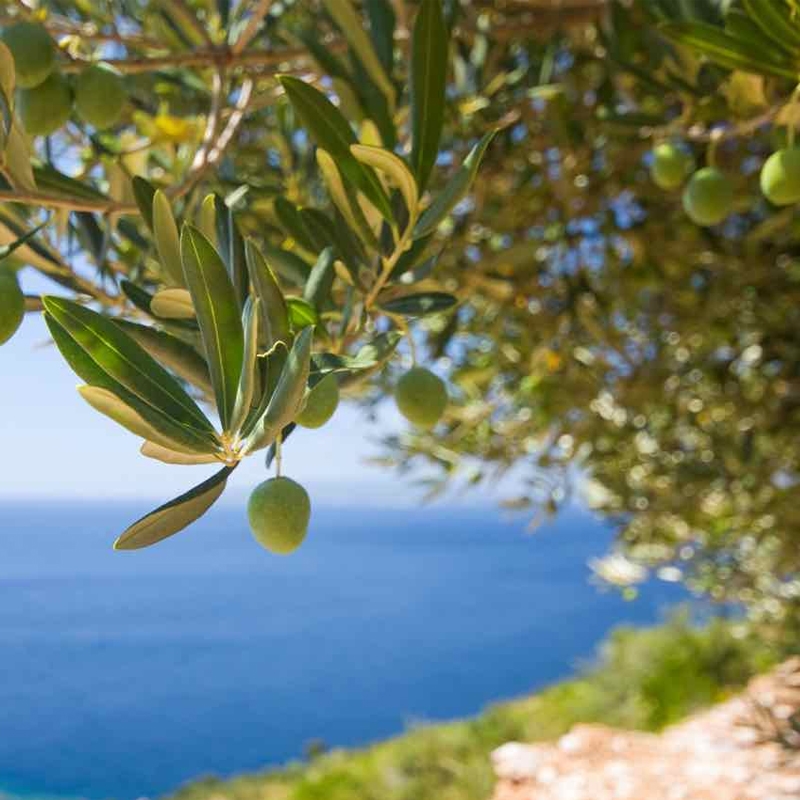
Favourable conditions
Incomparable microclimate
Geographical position and climate, it is the combination of these factors that generates an incomparable micro-climate and gives the plants the characteristics that allow us to obtain an extra virgin olive oil of the highest quality.
Oleum Comitis
our numbers
The result of this work is an Extra Virgin Olive Oil of excellent quality and unmistakable flavour, with unique organoleptic characteristics!


